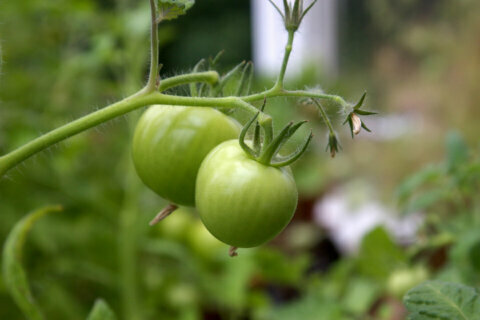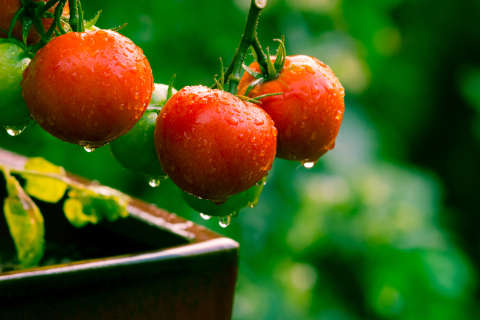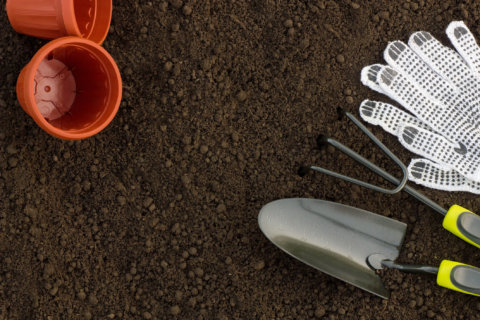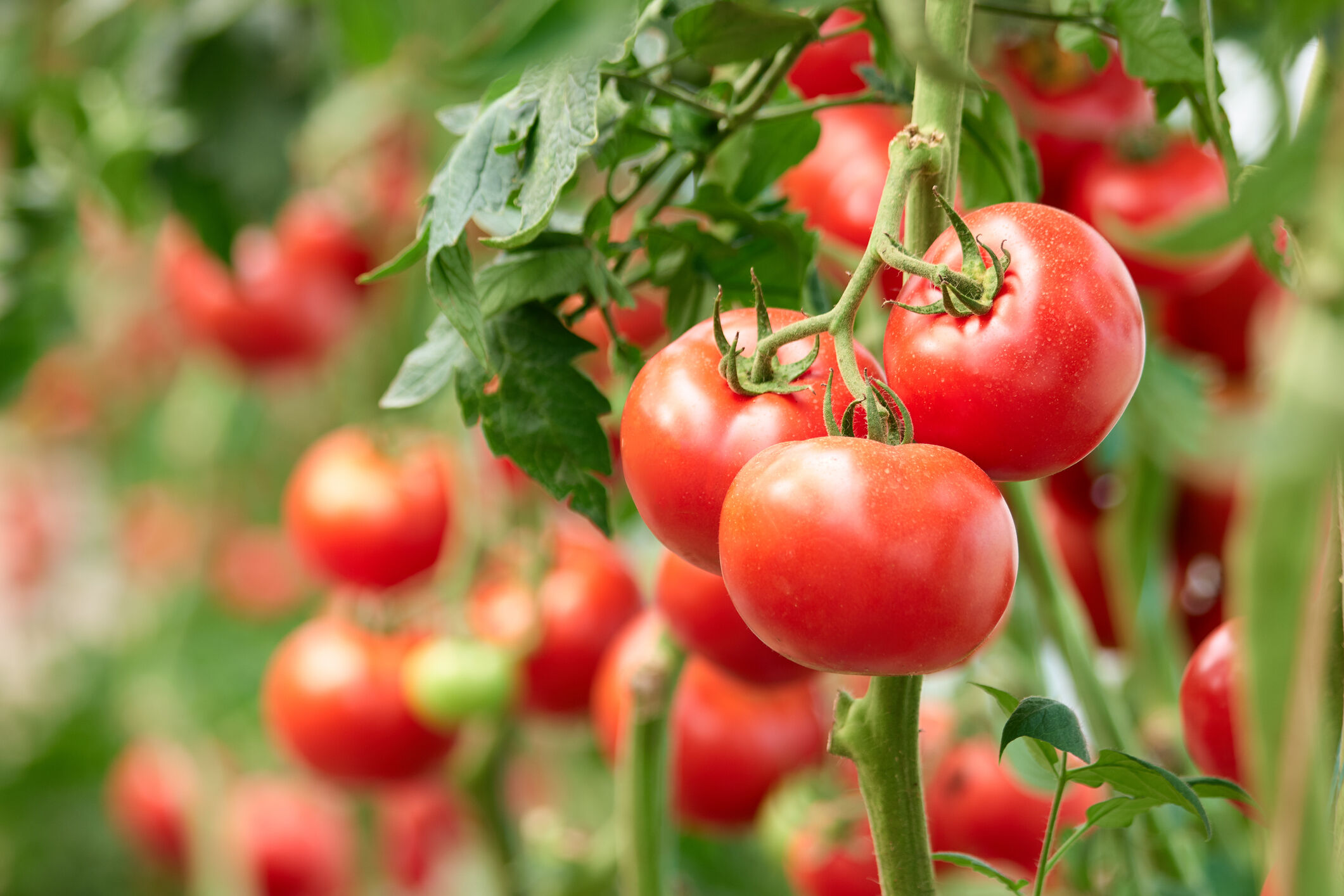
Anne in Falls Church, Virginia, writes:
“My husband just purchased some shredded wood mulch to use under our tomatoes. Then I read your recent comments about wood mulch equaling no tomatoes.
Are you saying don’t use wood mulch at all? What else would you suggest?”
Well Anne, the best mulch for tomatoes is high-quality compost; and the worst is any kind of wood.
Wood attracts and breeds fungal spores that can devastate disease-prone plants like tomatoes and roses.
A 2-inch mulch of high-quality compost neutralizes disease spores as they land on it and thus protects your precious plants.
And that’s compost, not composted manure, which is another animal entirely — or CAME from another animal entirely. Or maybe less than entirely if they needed more fiber …
The Many Moods of Mulch
Anne in Falls Church writes:
“Are you saying don’t use wood mulch at all? What else would you suggest?”
Wood mulch can be deadly to disease-prone plants like tomatoes and roses; and it can stain nearby homes and cars when it breeds nuisance molds like the dreaded artillery fungus.
The worst wood mulch is dyed wood mulch. I would not use dyed mulch for anything, as the added color may be there to disguise that the original wood may have been diseased or treated with toxins.
Arborist’s mulch — natural trimmings from a tree trimming crew — is acceptable for use in pathways. You can also use it around plants if you keep the mulch layer thin and don’t allow the chipped wood to actually touch the plant.
Never till any kind of wood — or even shredded leaves — into the soil. Good or bad, mulch stays on the surface.
The only mulch you should ever use around tomatoes and roses is compost.
For other plants, I use shredded fall leaves (which encourages earthworm activity) and pine straw, which is the most attractive mulch of all.
Way Too Late to Prevent Weeds!
Jerome in the Bethesda/Potomac, Maryland, region writes:
“I know its late in the game to use a pre-emergent, but is it TOO late? And what material would you recommend? I was going to use Preen.”
Well, Jerome; “Preen” is a company name and does not define a specific product. They market chemical herbicides as well as the safe and organic pre-emergent corn gluten meal. So you have to read the fine print.
In any case, it is way too late for any pre-emergent herbicide to limit the germination of weeds.
Where have you been all Spring?!
Jerome replies:
“We were overseas in Western Africa.”
Hmm. As excuses go, that’s a darn good one.
Anyway, corn gluten meal is also an excellent slow release fertilizer for your lawn, so feel free to apply it now. (And again in late summer/early fall; but never feed a lawn in the summer!)
Then never cut the grass below 3 inches and you’re on your way to weed freedom.
What’s killing Keith’s hedge?
Keith in Arlington, Virginia, writes:
“My hedge looks terrible. The new leaves were all spotted and then dropped off. I’m afraid it’s dying.”
So I asked Keith the usual questions; he responds:
“It is mulched, not fed, and our lawn is not treated. The only thing that might be important is that we had mosquito treatments last summer, and these hedges were the targets for the treatments.”
That’s truly weird, Keith. While it is true that mosquitoes hang out in damp and shady spots, spraying some shrubs is not going to limit their numbers. But insecticides generally don’t cause leaf drop, so I asked ‘what kind of mulch?’ and Keith said “hard wood.”
Bingo. Wood mulch breeds the kind of disease spores that would account for the leaf spots that are visible on the dirty pictures Keith sent.
Prune the plants for airflow, trash the wood and hope for the best.
Mosquito madness
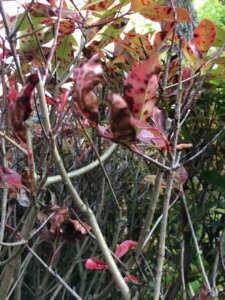
The pictures Keith in Arlington sent led me to believe that his plants might have been watered from overhead — the classic cause of leaf spotting. They were also overgrown, which makes disease pressures worse. AND they were victims of the hardwood mulch underneath — the best vector for plant disease spores to prosper.
But Keith added that the bushes had been sprayed for mosquito control, which is weird.
The best way to limit the number of mosquitoes on your property is to fill buckets and other watertight containers and then treat the water with BTI. Available in the form of donut-shaped dunks and granules, BTI prevents mosquitoes from breeding in that water without harming anything else.
It is THE best path to mosquito-bite prevention!

